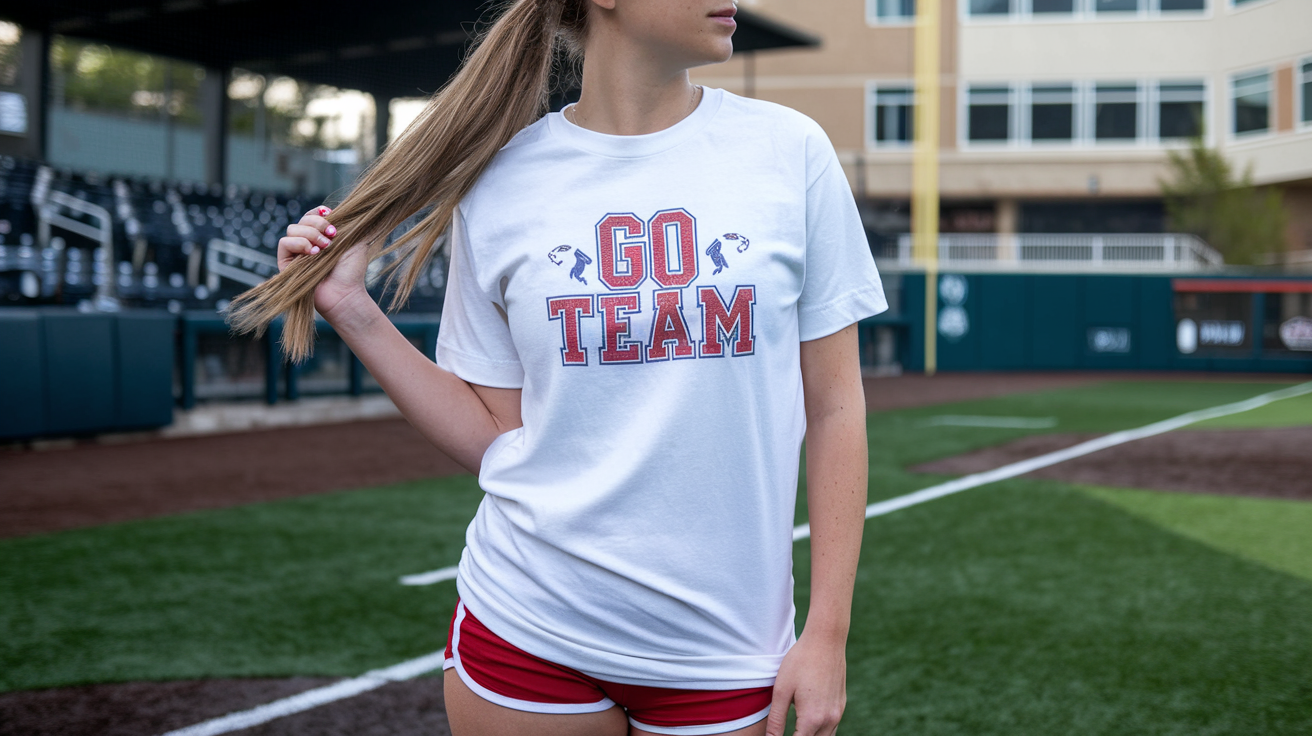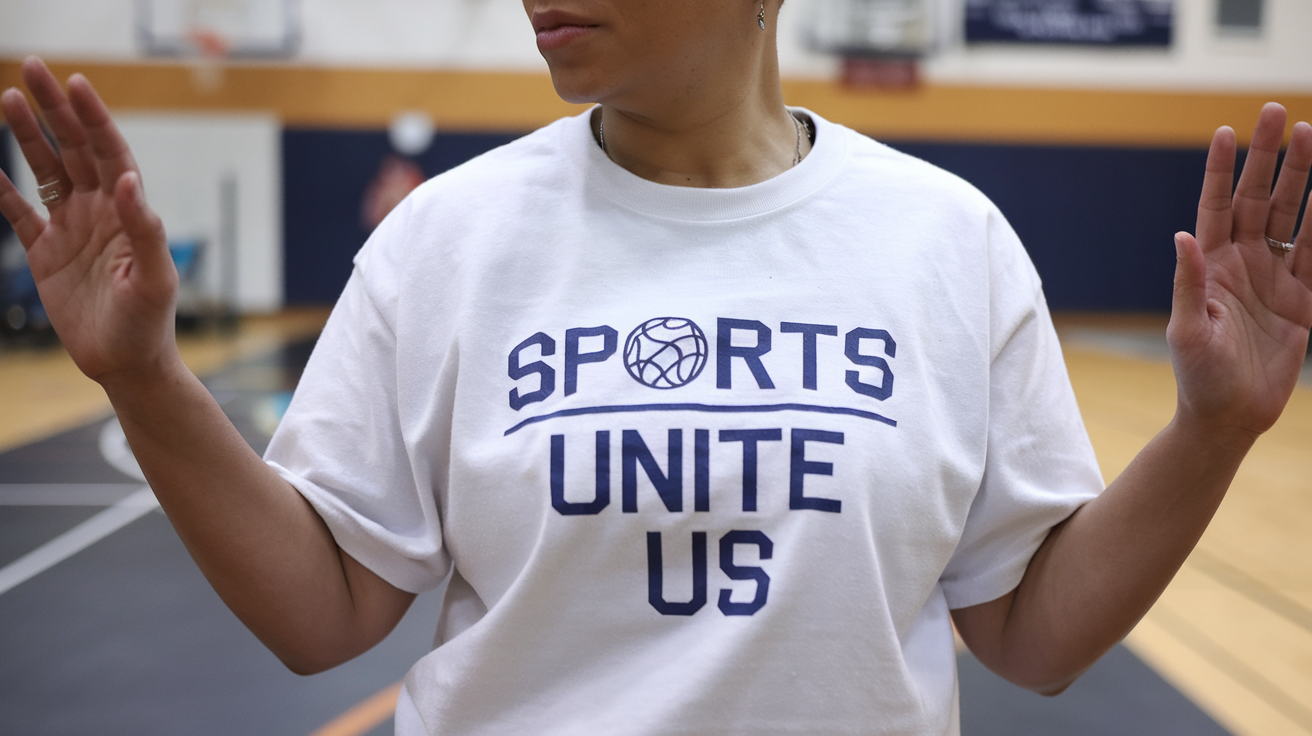Fashion is an ever-evolving tapestry of styles, trends, and statements. At the heart of this evolution lies one of the most versatile and ubiquitous garments known to humanity: the T-shirt. What began as an undergarment has transformed into a canvas for self-expression, political movements, and cultural commentary. In this blog post, we will delve into 10 iconic T-shirt designs that changed fashion, exploring their origins, impacts, and the lasting legacies they have left on our wardrobes and society at large.
The Origins of the T-Shirt
Before we dive into the legendary designs that have shaped fashion, it’s essential to understand the humble beginnings of the T-shirt.
The T-shirt first emerged in the early 20th century as a practical garment for soldiers and laborers. Made from cotton and designed for comfort, it was originally considered an undergarment or workwear. However, by the mid-20th century, the T-shirt began to make its mark as a standalone piece of clothing. The advent of screen printing allowed for vibrant graphics and messages, paving the way for its evolution into a medium of self-expression.
As we explore each iconic T-shirt design, we’ll appreciate how these shirts transcended their utility to become symbols of culture, identity, and social change.
The Classic Logo Tee
The classic logo tee is perhaps the most recognizable style associated with brand promotion and personal expression.
The Birth of Branding in Fashion
The concept of branding within fashion took off in the latter half of the 20th century, with companies like Coca-Cola and Nike leading the charge.
Coca-Cola’s logo T-shirts, featuring the famous cursive script, were among the first examples of using clothing as a marketing tool. This approach turned the T-shirt into a blank slate where corporations could emblazon their logos, transforming everyday wear into walking advertisements.
In parallel, Nike introduced its “swoosh” logo, which not only became synonymous with athleticism but also tapped into the rising trend of streetwear. This blending of lifestyle and athletic identity created a new market for casual wear.
Cultural Significance
The logo T-shirt serves as a powerful representation of consumer culture. When you wear a brand, you are participating in a broader narrative about status, lifestyle, and even rebellion against traditional fashion norms.
But what happens when those brands align themselves with cultural moments? For instance, the popularity of graphic tees featuring rock bands and icons solidified the notion that T-shirts could be more than just clothing; they could be badges of honor, affiliations, and even protest.
Personal Reflections
As a personal reflection, I believe the classic logo tee represents more than just commercialism. It allows individuals to connect with a brand’s ethos or image. Whether it’s a vintage Coca-Cola tee or a contemporary Off-White shirt, the stories behind these pieces often resonate with the wearer’s personal journey or experiences.
The Graphic Tee Revolution
Following the rise of logo tees, graphic T-shirts took center stage in the 1980s and 1990s, becoming the ultimate form of artistic expression.
From Concert Merchandise to Mainstream Fashion
Graphic tees originated primarily as concert merchandise, allowing fans to showcase their favorite bands and artists.
However, pop culture quickly adopted them beyond music. Artists like Andy Warhol blurred the lines between high art and fashion, inspiring a generation of designers to incorporate bold imagery and graphics into their T-shirt creations.
This shift effectively democratized art, making it accessible to the masses. No longer confined to galleries, artwork became wearable, and everyone could embody their artistic inclinations through fashion.
The Power of Political Statements
Beyond mere aesthetics, graphic tees sparked significant political discourse.
For example, in the late 70s and 80s, the punk movement used graphic tees to voice dissent against societal norms. Tees emblazoned with provocative slogans or iconography became rallying cries for change, capturing the spirit of rebellion.
Brands began to capitalize on this trend, creating collections that resonated with movements like feminism and environmentalism. T-shirts became canvases for activism, allowing wearers to participate in conversations surrounding important issues.
A Personal Lens
From my perspective, the graphic tee revolution has empowered individuals to express their beliefs and identities through fashion. A simple T-shirt can tell a story, represent a cause, or evoke nostalgia, bridging the gap between wearer and observer. Every time I slip on a vintage band tee or a shirt with a thought-provoking graphic, I feel a sense of connection to a larger community or movement.
The Band T-Shirt Phenomenon
Closely related to the graphic tee is the band T-shirt, which has played a pivotal role in shaping subcultures and fostering connections among fans.
Rock ‘n’ Roll Roots
Band T-shirts gained prominence during the rock ‘n’ roll era of the 60s and 70s.
Bands like The Rolling Stones and The Grateful Dead helped establish the practice of selling concert merch, introducing fans to the idea that wearing a T-shirt could signify loyalty and belonging.
As the music industry evolved, so did the band T-shirt. The 90s grunge scene saw the rise of underground bands and DIY culture, with fans proudly wearing shirts that echoed their musical preferences and values.
Pop Culture Impact
With the advent of hip-hop and pop music, band tees expanded into various genres.
Artists like Beyoncé and Drake have released limited-edition tees that encapsulate their brand and artistry, turning their merchandise into highly sought-after fashion items.
Moreover, collaborations between musicians and designers have given birth to iconic pieces that showcase the fusion of music and fashion, further cementing the band T-shirt’s place in pop culture history.
Reflection on Community
For me, band T-shirts serve as more than just clothing items; they are symbols of community and shared experiences. Wearing a band tee at a concert instantly creates a connection with fellow fans, often sparking conversations and friendships. They remind us of the power of music to bring people together and create collective memories.
The Political Statement Tee
The political statement tee emerged as a powerful vehicle for social change, challenging norms and addressing critical issues.
Pioneering Activism Through Fashion
Fashion has always been intertwined with politics, and the T-shirt has become a prominent medium for activism.
In the 1960s and 70s, civil rights movements utilized T-shirts with slogans advocating for change, such as “Black is Beautiful.” These shirts acted as visual representations of struggles and triumphs, galvanizing communities around vital causes.
Fast forward to today, and we see similar themes in modern protest movements. The Women’s March in 2017 popularized shirts emblazoned with phrases like “The Future is Female,” showcasing the power of fashion to amplify voices and inspire action.
High-Profile Endorsements
Celebrity endorsements play a significant role in the political statement tee phenomenon.
Public figures often use their platform to raise awareness for various issues, sporting T-shirts that feature powerful messages. The likes of Rihanna, Taylor Swift, and even Michelle Obama have harnessed the T-shirt as a form of advocacy, showing that fashion can indeed be political.
By wearing these shirts, celebrities elevate the conversation around pressing topics, encouraging their followers to engage, educate, and empower themselves.
My Thoughts on Activism and Fashion
Personally, I find political statement tees incredibly impactful. They allow individuals to express their beliefs without uttering a word. Each shirt tells a story, amplifying voices that might otherwise go unheard. The act of wearing a political statement tee transforms ordinary settings into platforms for dialogue and change.
The Vintage T-Shirt Revival
Nostalgia-driven fashion has taken the world by storm, and the vintage T-shirt revival exemplifies this trend.
The Allure of Nostalgia
In recent years, vintage T-shirts have surged in popularity, with many fashion enthusiasts seeking out unique designs from past decades.
Vintage tees evoke feelings of nostalgia, connecting wearers to specific eras, cultural moments, and memories. This longing for the past reflects a desire to reclaim authenticity in a world increasingly dominated by fast fashion and mass production.
The hunt for the perfect vintage tee has become a pastime for many, as thrifting and sustainable fashion movements gain traction. Finding a rare gem from a bygone era carries not just monetary value but emotional significance as well.
Influence of Social Media
Social media platforms, particularly Instagram and TikTok, have further propelled the vintage T-shirt trend.
Influencers and fashion enthusiasts showcase their unique finds, creating a sense of community around vintage shopping. Hashtags like
vintagetshirt and #thriftfinds have connected people who share a passion for sustainability and individual style.
The rise of online thrift stores has made vintage shopping even more accessible, allowing consumers to curate their wardrobe with character and history.
A Personal Connection to Vintage Fashion
For me, vintage T-shirts carry a unique charm. Each shirt has its own story, reflecting the tastes and trends of a different time. Wearing a vintage tee feels like stepping into history – a chance to connect with the past while making a statement in the present.
Whether it’s a faded concert tee from the 70s or a quirky graphic design from the 90s, there’s something special about incorporating these pieces into my daily rotation. They spark conversations and celebrate the ever-evolving nature of fashion.
The Unisex T-Shirt Movement
The unisex T-shirt movement has redefined gender norms in fashion, emphasizing inclusivity and versatility.
Breaking Down Gender Barriers
In recent years, the conversation surrounding gender fluidity and non-binary fashion has gained momentum. The unisex T-shirt embodies a shift toward breaking down traditional gender barriers in clothing.
Designers have embraced the notion that fashion should be inclusive, allowing individuals to choose garments that resonate with their personal identity rather than conforming to societal expectations.
Unisex T-shirts promote comfort and style for all genders, encouraging people to explore fashion beyond binary classifications.
Influential Brands Leading the Way
Several brands have become pioneers in the unisex movement, crafting T-shirt designs that cater to a diverse audience. Brands like UNISEX, Telfar, and Wildfang have garnered attention for their efforts to challenge conventional gender norms.
These companies not only offer stylish options but also foster conversations around identity, empowerment, and individuality. By providing unisex options, they encourage consumers to embrace their authentic selves without limitations.
My Perspective on Inclusivity
To me, the unisex T-shirt movement is a celebration of diversity. It fosters a sense of belonging and acceptance, allowing individuals to wear what resonates with them, regardless of societal expectations.
As someone who appreciates a variety of styles, I love that I can find T-shirts that reflect both my personal taste and my commitment to supporting inclusivity in fashion. The unisex T-shirt serves as a reminder that style knows no boundaries and that fashion should be a source of empowerment for all.
Conclusion
Throughout the decades, T-shirts have evolved from basic undergarments to powerful vehicles for self-expression, culture, and activism.
From classic logo tees to political statement shirts, each iconic T-shirt design has contributed to the rich tapestry of fashion history. They have served as blank canvases for creativity, platforms for meaningful discussions, and expressions of individuality.
As we look ahead, it’s clear that T-shirts will continue to be a vital part of our wardrobe, adapting to the ever-changing landscape of fashion and society. Ultimately, these ten iconic designs remind us that fashion is more than just clothing; it is a reflection of who we are and the world we inhabit. Embracing the stories behind our T-shirts allows us to connect with the past, inform the present, and inspire the future.


